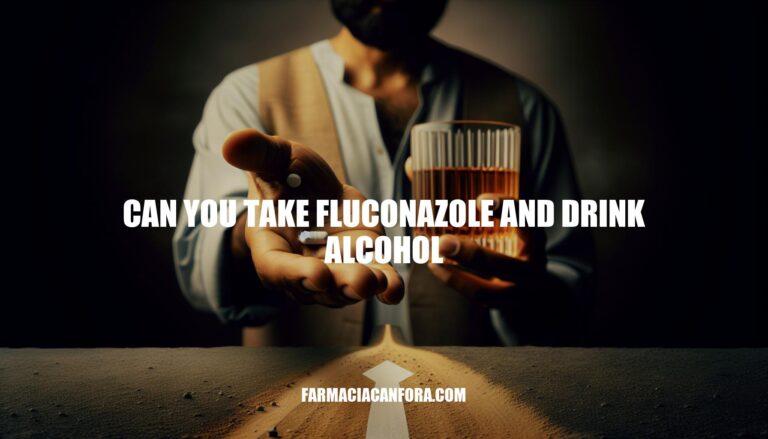


When it comes to the question of whether you can take fluconazole and drink alcohol, the answer isn’t a simple yes or no. Understanding the potential risks and considerations of combining these two can be crucial for your health and well-being. The interaction between fluconazole, an antifungal medication, and alcohol can impact your liver function and overall health.
Let’s delve deeper into the implications of mixing fluconazole with alcohol to ensure you make informed decisions.
When it comes to taking fluconazole and drinking alcohol, there’s a lot of confusion out there. Can you take fluconazole and still enjoy your favorite drink? The answer is not as simple as a straightforward yes or no.
It all depends on several factors that we’ll dive into below.
Firstly, it’s essential to understand that fluconazole is an antifungal medication used to treat fungal infections. As with any medication, combining it with alcohol can sometimes lead to interactions or affect how the medication works. While consuming alcohol while taking fluconazole may not cause a direct interaction with the medication itself, it’s still crucial to exercise caution.
Drinking alcohol while taking fluconazole can put additional strain on your liver, as both the medication and alcohol are metabolized by this vital organ. This could potentially cause liver problems in some individuals, especially if they have pre-existing liver issues. To minimize potential risks, it’s recommended that you wait at least a few hours after your last drink before taking your first dose of fluconazole.
It’s crucial to remember that the general consensus is to avoid beverages high in sugar and yeast, such as cocktails, beer, and wine. If you do choose to drink, it’s recommended that you only consume small doses. Additionally, studies have shown that liver damage may occur if you regularly consume more than 30 grams of alcohol per day.
To put this into perspective, 30 grams is equivalent to two 5-ounce pours of wine, two 1.5-ounce liquor shots, or two 12-ounce beer bottles.
If you’re struggling with the urge to drink while taking fluconazole, it’s crucial to seek medical advice from a healthcare professional. They can provide guidance based on your medical history and treatment plan. Remember, it’s always better to err on the side of caution when it comes to combining medications with alcohol.
So, if you’re unsure about what to do, it’s best to consult with your doctor or pharmacist for personalized advice.
It’s essential to prioritize your health and well-being by being mindful of your medication and alcohol intake. By doing so, you can minimize potential risks and ensure a safe and effective treatment plan.
In conclusion, the dilemma of whether you can take fluconazole and drink alcohol can have significant implications for your health. While it may not result in direct interactions with the medication, consuming alcohol while on fluconazole can strain your liver and potentially lead to complications. It’s imperative to exercise caution, limit alcohol intake, and seek guidance from a healthcare professional to ensure your safety.
Prioritizing your health by being mindful of how you combine medication and alcohol is essential. Remember, when in doubt, always consult with your doctor or pharmacist for personalized advice to make informed decisions about your health.